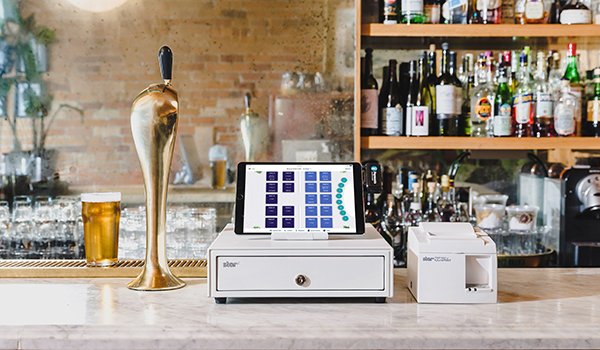In today's dynamic business environment, the value of effective customer relationship management cannot be ignored. A key factor of this strategy lies in the use of contemporary Point of Sale (POS) systems. These advanced tools have evolved far beyond their old-fashioned cash register roots to become fundamental parts of both retail and hospitality industries. By optimizing Restaurant POS Systems and boosting customer interactions, a robust POS system contributes greatly to overall business success.
Understanding what a POS system is and its essential features is the initial step for businesses aiming to enhance their customer engagement. The evolution from basic cash registers to advanced cloud-based solutions illustrates just how essential these systems have become. As we explore the components and features of modern POS systems, we will discuss how they can revolutionize businesses, improve customer experiences, and support effective relationship management across multiple industries. Whether you run a petite business or a massive enterprise, the right POS system can make a substantial difference in your operations and customer satisfaction.
Understanding Point of Sale Systems

A Point of Sale system is a all-encompassing solution that allows companies to manage transactions efficiently, oversee inventory, and acquire insights into consumer behavior. Traditionally, POS systems were simple cash registers that handled sales and gave change. However, advanced POS systems have evolved significantly, incorporating sophisticated features that simplify operations and elevate the overall customer experience.
Present-day POS solutions come equipped with diverse functionalities, such as stock management, sales reporting, and client relations management. These solutions can operate as cloud-hosted solutions or traditional setups, allowing adaptability based on a company's requirements. By adding features such as mobile payments and contactless transactions, a contemporary POS solution can respond to the dynamic demands of contemporary retail and hospitality environments.
The change from basic cash registers to complex POS systems reflects the growing need for companies to optimize their operations. With the capacity to assess sales data, track customer preferences, and manage employee productivity, POS solutions play a essential role in guiding company strategies. As enterprises look for ways to improve customer service and enhance efficiency, understanding the capabilities of a powerful POS solution is vital for achieving long-term success.
Selecting the Appropriate POS System
Selecting the right POS solution for the business demands detailed evaluation of different elements that fit with your specific needs. Start by assessing the type of your business, regardless of whether it is a retail business, the hospitality industry, or online sales, as various industries may require particular needs. Look for features that cater directly to the operations, such as inventory management for retail or reservation management for restaurants. Additionally, consider the scalability of the system to ensure it can expand alongside your business.
Once you have identified the necessary features, compare various systems and their cost structures. Some POS solutions operate on a monthly fee, while others involve a single purchase. Determine your budget and evaluate whether the system provides a good return on investment. Pay attention to transaction fees, payment processing costs, and any additional charges for enhancements or add-ons. Read reviews and seek suggestions from other businesses within your industry to gauge reliability and user satisfaction.
Lastly, think about the customer support and training options available with the POS system. A system is only as beneficial as its usability; thus, ensure it offers intuitive interfaces and comprehensive support. Training your staff efficiently is crucial for a smooth transition and maximum operation. By choosing a POS system that meets your needs and provides strong ongoing support, you can enhance customer relationship management and improve overall business performance.
Improving Client Experience with POS Systems
A new POS system greatly boosts the customer experience by streamlining transactions and reducing wait times. Featuring features such as fast checkout processes and digital payment options, customers can enjoy a seamless purchasing experience. This speed not only satisfies customers but also promotes repeat business, as quick service frequently leads to enhanced customer satisfaction.
Additionally, POS systems can collect important customer data that businesses can use to personalize services and promotions. By integrating with CRM systems, businesses can modify marketing strategies based on buying behavior and preferences. This degree of customization improves the overall customer experience, making each interaction more tailored for the consumer.
Ultimately, the integration of inventory management features within a POS system ensures that businesses can maintain stock levels adequately, which prevents out-of-stock situations. When customers discover the products they want, their shopping experience improves significantly. Overall, the adoption of sophisticated POS systems helps businesses create a more inviting, effective, and enjoyable experience for their customers.
